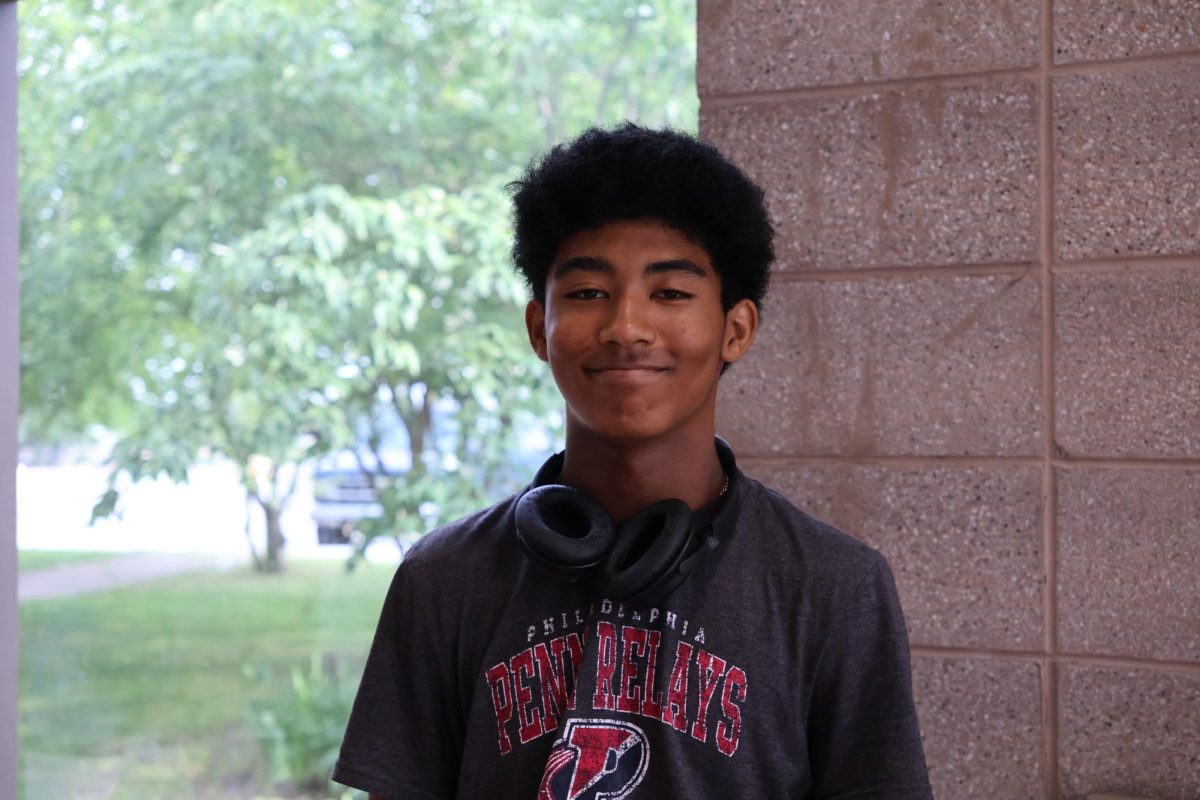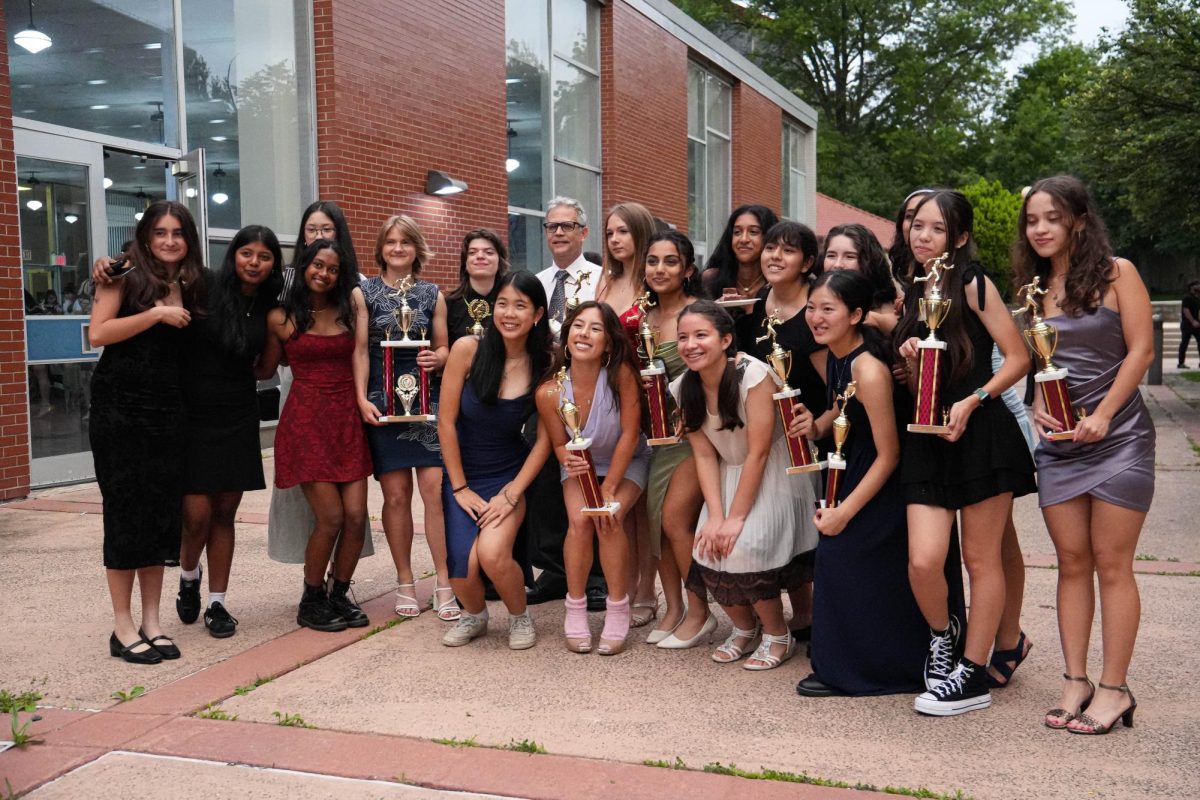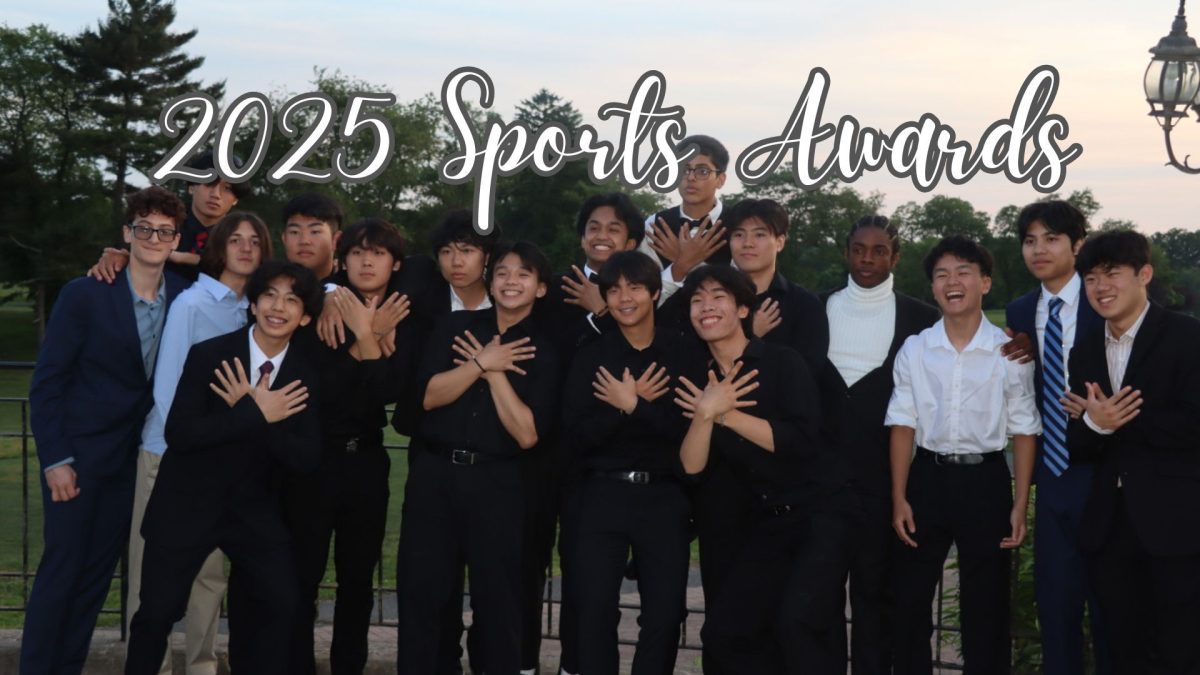
Any athlete knows that when winter strikes, it becomes more difficult to train for his or her respective sport. However, being snowed in doesn’t mean it’s time to hibernate. Offseason or not, several Townsend Harris athletes must adjust to the cold climate in order to stay on top of their game.
Athletes who compete in sports held in the winter, such as sophomore Alexis Sarabia, a club swimmer, and junior Ashley Sealy, a competitive gymnast, bear the brunt of the most challenging workouts. Both devote time to their respective sports at the Cross Island YMCA.
Ashley said, “During the winter, I train more seriously [than in the summer] because the dates of my meets are closer.”
“In the pool, we start bringing up the intensity [level] because all the big qualifying meets take place in the winter,” said Alexis. “We do harder sets, repeat some sets, or swim at faster intervals. This helps the team get faster and build endurance.”
Track, on the other hand, is a year-round sport consisting of three seasons: cross-country, indoor track, and outdoor track. During the indoor track season, the track team shifts their practice from outside on the track to inside the school building, where they use the weight room and sometimes the hallways to complete their workouts.
“We try to build up our strength instead of just doing running workouts by going to the weight room or doing core and upper body workouts,” said senior Dayana Tavarez, racewalking captain of the girls indoor track team. “Doing these full body workouts make us stronger and faster because we are building up muscle that aids us in the respective events we run.”
Although in-season winter training can be brutal for some athletes, others use their offseason to improve technical skills and maintain general fitness in preparation for the upcoming spring and fall seasons.
“I tend to do a lot of lunges, squats, and jump ropes [in the winter],” said boys fencing team member, junior David Zarowin.
David practices at the North Shore Fencers’ Club year-round. In the winter, he aims to improve skills he cannot completely develop in the heat of the competitive fall season.
Similarly, senior Ethan Nittolo, who competes in individual tennis competitions year-round, dedicatedly trains at an indoor facility in the winter. There, he focuses on building up strength with certain exercises in lieu of the intensive cardiovascular drills he does in the summer.
“In the winter, we do more work with weights in order to become more powerful and explosive on the court while still incorporating some cardio three times a week,” he explained.
Additionally, Ethan uses the winter to develop agility. Tennis is played at a much faster pace indoors, which forces him to focus on improving his technical abilities.
“My coach will do more quick reaction drills to speed up my reflexes as well as break down my game technically to clean up my strokes and footwork,” he said.
Freshman Philip Fraczek plays for Blau Weiss Gottschee soccer club where he also trains at an indoor facility in the winter.
“The main benefit of winter training for indoor soccer is that we enter the spring season with an improved understanding of the game,” said Philip. “Since indoor soccer is a fast-paced game, our minds are set to react quicker and make faster decisions.”
Despite this dedication, it is still extremely tempting to relax in the winter. Like any other skill, training consistently is key, even if nature attempts to impede one’s progress.
Junior Dina Goodger, who plays softball and soccer for the school, said, “It’s so easy to say ‘Oh it’s too cold, I’ll go to the gym tomorrow’ or ‘Oh one more cookie, it’s the holiday season.’ Pushing yourself during the winter is hard, but it pays off a lot. Training during these months will up your game and give you an extra edge over your competition– especially over those who haven’t been training.”
































